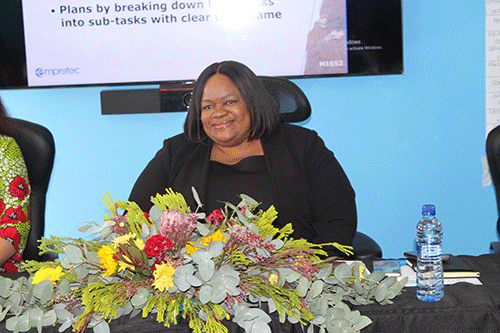OSHAKATI – Every region in Namibia has a unique competitive advantage it can leverage to boost its economy, minister of industrialisation and trade Lucia Iipumbu said.
She made this observation during a consultative meeting held at Oshakati yesterday, where discussions centred around pivotal legislative frameworks, including the Special Economic Zone (SEZ) Bill, the National Informal Economy, Start-ups and Entrepreneurship Development Policy (NIESED), the Namibia Investment Promotion and Facilitation Regulations, and the National Cooling Strategy.
Namibia has phased out the Export Processing Zones (EPZ) and is currently transitioning to SEZ, with a special focus on strengthening regions’ economic potential to maximise production.
“The concept of special economic zones has proved to be a catalyst for economic transformation in various parts of the world. By creating designated areas with favourable business conditions and incentives, governments aim to attract both domestic and foreign investments, foster innovation and generate employment opportunities,” she noted.
Iipumbu emphasised the necessity to replace the outdated EPZ law as it had various challenges, and advocated a proactive slant in drafting the SEZ Bill with a forward-looking approach, incorporating measures to promote innovation, research and development, and new technology.
The minister said this will give Namibia the opportunity to position itself as a hub for cutting-edge industries, attracting both domestic and foreign investment which will fuel economic progress, and outlined intentions to table the Bill in Parliament before the end of this year.
Echoing Iipumbu’s sentiments was Oshana governor Elia Irimari, who underscored the potential of the SEZ Bill to boost economic growth and create employment.
“The NIESED policy is equally critical, as it seeks to provide a supportive environment for entrepreneurs,” the governor said.
He also emphasised the importance of the Namibia Investment Promotion and Facilitation Regulations in fostering a conducive environment for local and international investors, which is fundamental in driving economic growth and development.
-Nampa


